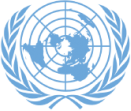
Thank you, Mr. Chairman,
I align my statement with those delivered by the State of Palestine on behalf of the Group of 77 and China, and by Malawi on behalf of the LDCs.
Mr Chairman,
The idea of “leaving no one behind” refers to pains and plights of millions of people who are in poverty. These people should be the point of departure to our desire to create a peaceful, prosperous and secure world.
It is a welcome development that extreme poverty in last few decades have been significantly reduced. The progress in itself is remarkable.
However, the world is not on track to eradicate extreme poverty by 2030. It is a matter of concern that the rate of poverty reduction is further decelerating while those left behind are becoming increasingly harder to reach.
As SG’s report (A/74/257) highlights, extreme poverty continues to be disproportionately rural, with 79 percent of the extreme poor living in rural areas. The battle to eradicate poverty, in all its forms and dimensions everywhere, will therefore be either won or lost in rural areas.
Th 2018 global Multidimensional Poverty Index showed that, of 1.3 billion poor people in 2018, 83 percent lived in sub-Saharan Africa and South Asia. As these regions are also undergoing significant population growth, we must holistically respond to decouple poverty and population growth.
We have seen that poverty has remained a fertile ground of frustrations breeding anger, conflicts, instability and even terrorism. A coordinated global action is required to address this problem on an urgent basis.
We are confident that the Third United Nations Decade for the Eradication of Poverty (2018-2027) will play a crucial role in this regard. All our actions should be coordinated, forward looking and meaningful.
Mr. Chairman,
Complex, vicious, and multifaceted nature of poverty and social inequality are the biggest hurdles for achieving sustainable development. The problem is even more complex and difficult in LDCs and other vulnerable countries.
A focused, concerted, integrated, and holistic approach is required to address the problem in these countries. The approach should include, among others, enhancing productive capacities, promoting inclusive and sustainable industrial development to create jobs, promoting structural transformation, supporting rural farms and non-farms economy, implementing social protection floors and promoting innovations.
The ongoing technological changes are impacting the labour-markets profoundly. The skills-based nature of this change is creating job polarization, and labour displacing technologies are having impacts on the nature and location of production.
One of the underlying causes of the development divide between developed and developing countries, is the technological divide. With the frontiers of technologies expanding, this divide continues to widen.
Therefore, it is a must that we begin a multilateral dialogue to set normative frameworks on digital cooperation, including the related impacts on human resources. As Nepal highlighted during the General Debate, we must create guardrails before a torrent takes us by surprise.
Mr. Chairman,
Poverty reduction has remained a focus of the Government of Nepal over the last few decades. Given our low-income status and insufficient resources, we have made remarkable progress on reducing poverty and hunger.
The Fifteenth Development Plan of Nepal also aims to reduce poverty to 11 percent by 2024.
Our national efforts must be complimented with international support measures. Such measures must acknowledge the specific needs and challenges of the LDCs and LLDCs thereby providing them with enhanced, predictable and sustained financial and technical support.
I conclude, Mr. Chairman, by stressing that eradication of poverty underpins the entire edifice of sustainable development and Nepal remains committed to this goal.
I thank you!


